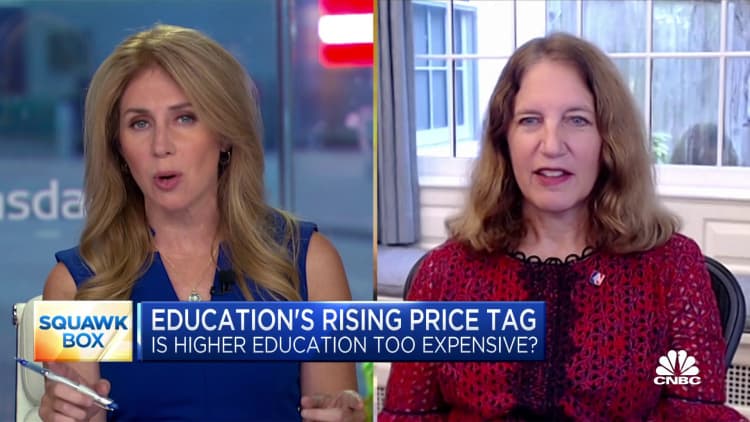
For many families, financial aid is crucial when it comes to affording college.
But students must first fill out the Free Application for Federal Student Aid to access any assistance, including student loans, work study and grants. And this year, a new FAFSA form has been plagued by problems.
"It does seem consistent with a process that was rushed at the end with inadequate testing," higher education expert Mark Kantrowitz said. "They are building the plane while flying."
More from Personal Finance:
How to understand your financial aid offer
The cheapest states for in-state college tuition
Fewer students are enrolling in college
For starters, the new FAFSA just soft-launched on Dec. 30 after a monthslong delay. Typically, students have access to the coming academic year's form on Oct. 1.
In the days since its launch, the 2024–25 form was only available for limited windows of time as the U.S. Department of Education worked to "resolve minor issues," according to a department spokesperson.
Some of the issues have been specifically related to contributors to the form, such as parents, who are not U.S. citizens or permanent residents, according to Kantrowitz, in addition to other various glitches and a prolonged processing time.
1 million students submitted a 2024–25 FAFSA so far
Still, the site has been flooded with eager applicants who rely on college aid.
"Over 1 million students and families and counting have successfully filled out the 'Better FAFSA,' which is now available 24 hours a day, seven days a week," U.S. Secretary of Education Miguel Cardona said in a statement.
In ordinary years, the FAFSA form is used by more than 17 million students and roughly 5,500 colleges and universities in all 50 states, according to the Department of Education.
Kantrowitz, who tested the system Jan. 2, said his submitted application "is still showing as not yet finished processing."
"Six days later, it is still listed as 'in review,'" he said. "Normally, the FAFSA would be processed within a few days," he added.
Despite the lag, the Department of Education said there is "plenty of time to complete the FAFSA form." Even if students successfully submit a completed 2024–25 form early this year, that information won't be sent to schools until late January, the department said.
Students are 'understandably frustrated'
Even by soft-launch standards, the rollout was challenging, according to Justin Draeger, president of the National Association of Student Financial Aid Administrators.
"Students, families, and financial aid administrators who have been waiting for this release for months are understandably frustrated," Draeger said.
Further, it is still unclear when schools will receive each applicant's FAFSA information, he added, which is necessary to begin building financial aid packages and to give students and families enough time to review and compare financial aid offers.
"The sooner the Department can deliver this information, the better," Draeger said.
Because of the postponement, colleges might not get their financial aid award offers done until late March or early April, according to Kantrowitz.
"They'll probably send out the offers of admissions out on time, but for families, they won't know how much aid they are going to get," he said. "They need to know whether they can afford the college."
The FAFSA delay's 'domino effect'
That could potentially push back National College Decision Day on May 1, which is the deadline many schools set for admitted students to choose a school.
"The FAFSA rollout has been a mess and will be even more so if colleges have to push back their commitment deadlines beyond May 1," said Hafeez Lakhani, founder and president of Lakhani Coaching in New York. "This will have a domino effect on wait list candidates as well."
Still, Rick Castellano, a spokesperson for Sallie Mae, advises students and families not to get discouraged.
"Families shouldn't use this setback, however, as a reason not to submit the form," Castellano said.
"Completing the FAFSA can unlock scholarships, grants, state-based, and federal aid, and the last thing you want to do is leave free money on the table," he said.


